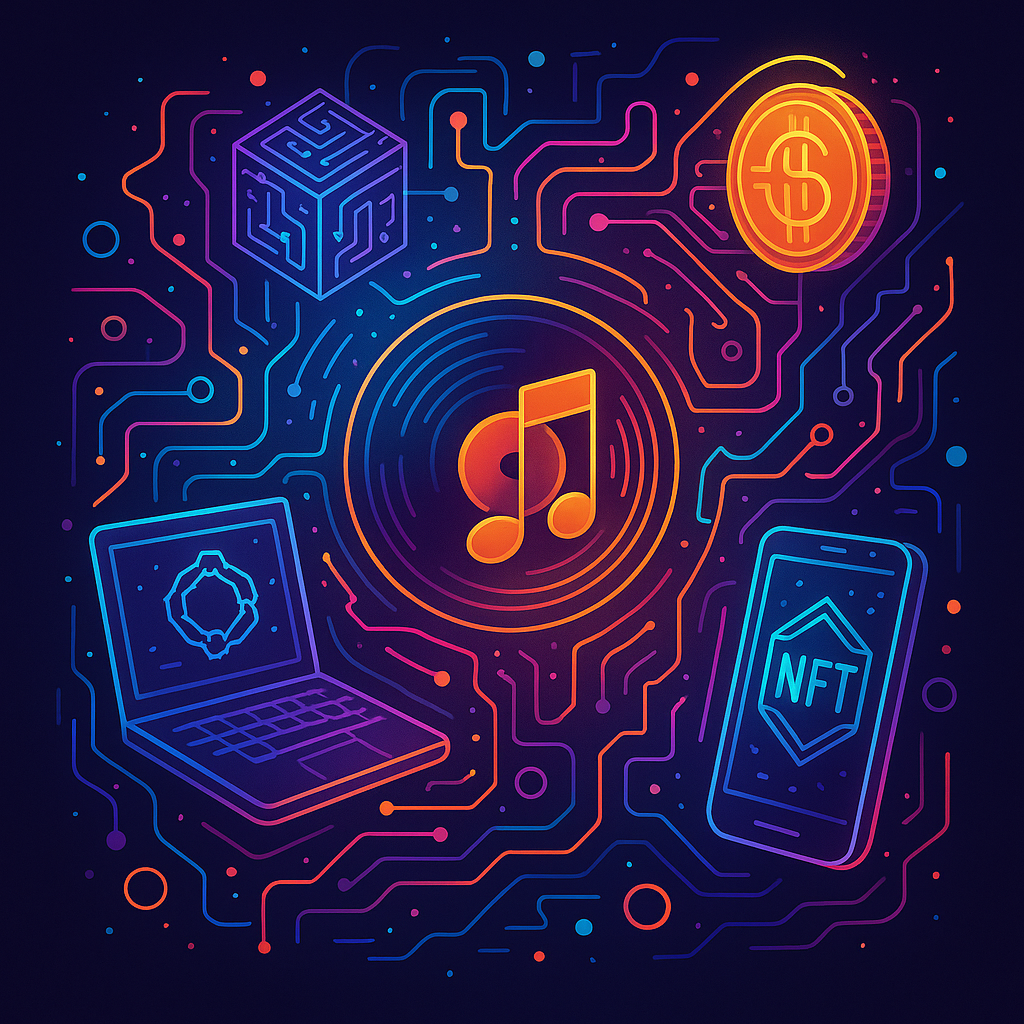
Music Royalties, Blockchain & Regulation: Nigeria’s Investment and Securities Act 2025
To update Nigeria’s capital market rules to match global standards, keep up with changes within this sector in the past 18 years, protect investors better, and make the market more transparent, Nigeria’s Investment and Securities Act of 2025 (ISA) was signed into law in March 2025. It replaces the Investments and Securities Act of 2007. Although a welcome development for Nigeria’s capital market, our focus today is on how this legislation might redefine the way Nigerian artists earn and diversify their music royalties.
The Unfolding Legal Status of Digital Assets in Nigeria
Nigeria’s stance on digital assets has undergone quite a transformation. From the Central Bank of Nigeria (CBN) issuing warnings about the risks of cryptocurrency use and its potential for illicit use, to an outright ban in 2021, the country seemed to be closing the door on virtual currencies.
However, between 2023-2024, there was a gradual easing of policies, as guidelines were introduced for Virtual Asset Service Providers. And in 2025, a law that expressly recognizes digital assets as securities.
Digital Assets as Securities
With this new law, digital assets are now considered securities. This includes cryptocurrencies, Non-Fungible Tokens (NFTs), and tokenized assets. Automatically placing virtual Asset Service Providers (VASPs), Digital Asset Operators (DAOPs), and Digital Asset Exchanges under the regulatory scope of the Securities and Exchange Commission (SEC).
This means platforms involved in blockchain technology, crypto exchanges, and NFT marketplaces are now regulated by the SEC. Which may include guidelines for their registration, licensing, and tax reporting. For investors, it ensures greater transparency and legal protection for their digital investments.
How the ISA 2025 Could Impact Music Royalties
It’s no secret that the process of royalty distribution could be complex. There are quite a few challenges from inefficient collection systems, delayed payments, to poor data tracking. Accurately monetizing streams, downloads, and usage across platforms can be daunting.
However, technology is offering ways to fix this, exploring how blockchain can enhance efficiency in royalty distribution.
Tokenizing Music Assets
The tokenization of music rights is a concept that involves converting ownership of a song or album into tradable digital tokens, each representing a fractional stake in the asset. These tokens can be bought, sold, and used to automate royalty distribution based on token ownership.
DJ and producer 3LAU (Justin Blau) founded a company called Royal.io (not to be confused with Royalti.io) that allowed fans the opportunity to purchase Limited Digital Assets (LDAs) tied to streaming royalties. Other platforms like Opolous also champion the idea of tokenized music assets.
Additionally, artists can mint exclusive versions of their songs as NFTs and sell them through blockchain-based platforms like Catalog, where collectors can purchase them.
Blockchain Technology for Royalty Data
The potential of blockchain goes beyond tokenization. It can be used to create a unified royalty database capable of accurately tracking streams and downloads in real time. These developments could diversify music income streams and attract new investors into the music space.
Moving Forward: Expectations and Challenges
By giving digital assets legal recognition, the ISA 2025 lays the foundation for broader blockchain adoption in music royalty management in Nigeria. It introduces alternative payment avenues, such as crypto-enabled royalty settlements or trading platforms for music rights.
Since these platforms will be regulated by the SEC, the digital assets market is likely to become more stable and investor-friendly. Drawing interest from institutional investors interested in exploring music as an asset class.
Challenges
The Act provides a legal foundation. However, enforceable standards for the use of digital assets in royalty systems still need to be developed. There is a need to address how digital asset ownership can coexist with existing copyright laws.
There is also a need for education. Enlightening industry players on the potential of digital assets, as the future of music rights and the diversification of royalty streams. This has become imperative, in light of ongoing conversations about the earning disparities between Nigerian artists and their global counterparts.
Widespread adoption will only happen if there’s investment in blockchain infrastructure. Such as databases, smart contracts, secure marketplaces, that support these new models.


